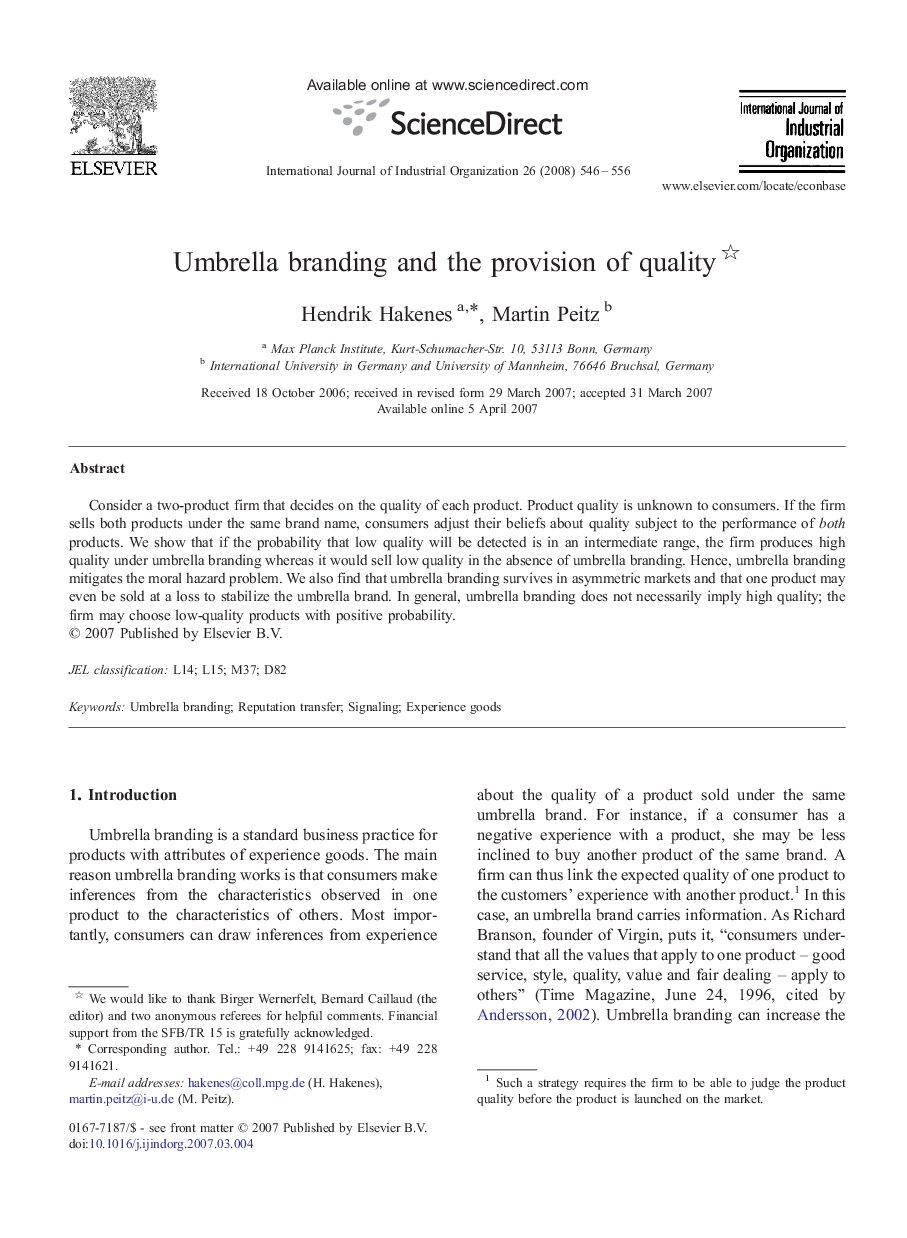| Article ID | Journal | Published Year | Pages | File Type |
|---|---|---|---|---|
| 5078661 | International Journal of Industrial Organization | 2008 | 11 Pages |
Abstract
Consider a two-product firm that decides on the quality of each product. Product quality is unknown to consumers. If the firm sells both products under the same brand name, consumers adjust their beliefs about quality subject to the performance of both products. We show that if the probability that low quality will be detected is in an intermediate range, the firm produces high quality under umbrella branding whereas it would sell low quality in the absence of umbrella branding. Hence, umbrella branding mitigates the moral hazard problem. We also find that umbrella branding survives in asymmetric markets and that one product may even be sold at a loss to stabilize the umbrella brand. In general, umbrella branding does not necessarily imply high quality; the firm may choose low-quality products with positive probability.
Related Topics
Social Sciences and Humanities
Economics, Econometrics and Finance
Economics and Econometrics
Authors
Hendrik Hakenes, Martin Peitz,
